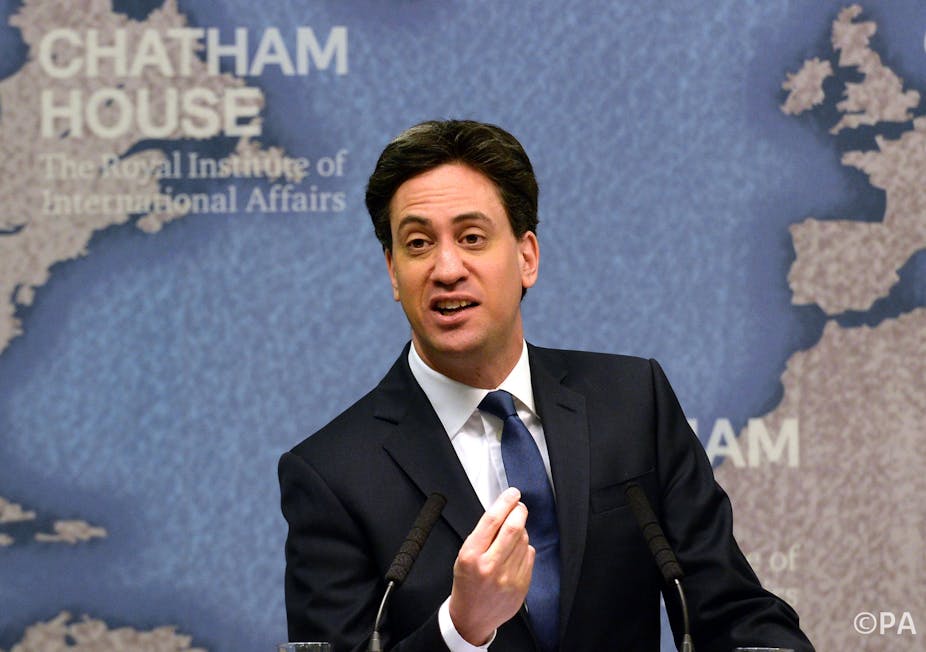Ed Miliband’s foreign policy speech at Chatham House knocked the Tory offering of the day, an English Manifesto, off the election agenda.
On the Conservative side, the planners had clearly decided that if that what was to happen, then it would be best to go hard at Miliband on the issue of intervention in Libya. They launched a pre-emptive strike before Miliband’s speech, revealing that the Labour leader planned to blame David Cameron personally for the deaths of desperate migrants in the Mediterranean because of his failure to handle the conflict in Libya. This smacked of opportunism, they said, demanding a retraction even before a single word had been uttered.
While Miliband’s actual speech was cautious about blaming Cameron for Libya’s post-Gaddafi disaster, it is most certainly the case that the decay of the country into multiple militias and deep insecurity has allowed people smugglers to benefit hugely from the absence of any kind of organised rule of law.
This is at least in part due to NATO states’ abject failure to engage in serious post-conflict stabilisation. Miliband was pointing to a joint failure of responsibility, and that is difficult to counter – especially as the UK and France were the key European participants in the air strikes on Libya.
There is also growing evidence that parts of Libya are becoming safe territory for extreme factions closely linked to Islamic State.
Climate talks
There was another element of Miliband’s foreign policy speech that has been missed by the media: an unusually strong statement on climate change.
This would be at the “core” of a Labour government agenda, he said, adding that he would push for ambitious emissions targets for all countries, to be reviewed every five years, and set a goal of net zero global emissions in the second half of this century. He would also want to see richer countries helping poorer nations in their climate change efforts.
In the whole of this campaign, this hugely important issue has been almost entirely missing from the debate (the Green Party aside).
Miliband believes it is crucial. He was at the Copenhagen climate change conference more than five years ago, and was part of the effort to stop it being a total washout. It is an issue that worries more people than most sections of the media appreciate.
If Miliband announced, as prime minister, that the forthcoming Paris climate meeting is the most important summit of the 21st century so far and that he would personally lead the UK delegation, he might get a loud raspberry from much of the Conservative press. But he could also strike a chord with far more voters than his opponents anticipate.
Liven up
While this election may be heading for a cliffhanger of a result, much of the actual campaign has been frankly boring. Foreign policy has scarcely figured at all, except for Europe and mind-numbing arguments over Trident – as though the ability to kill five million people in less than 45 minutes is a prerequisite for great power status.
Miliband seems to have realised this – and at Chatham House, he actually managed to liven up the agenda for once.
His whole speech was markedly internationalist, and seized on a perception that the Tories, under Cameron, have lost the country some of its international standing. To quote Miliband directly, this has been a government of “inward-looking pessimistic isolationism”.
Some would call this unfair but Miliband can afford to take more risks at this stage in the campaign, given that the public’s perception of Miliband seems to have improved markedly.
The polls have scarcely shifted in the past three weeks but Miliband’s personal standing has suddenly and dramatically improved. You even get a sense that he is beginning to relish the fight. If so, then a strongly internationalist speech could be usefully timed for moving the debate on to new issues in this long campaign.

